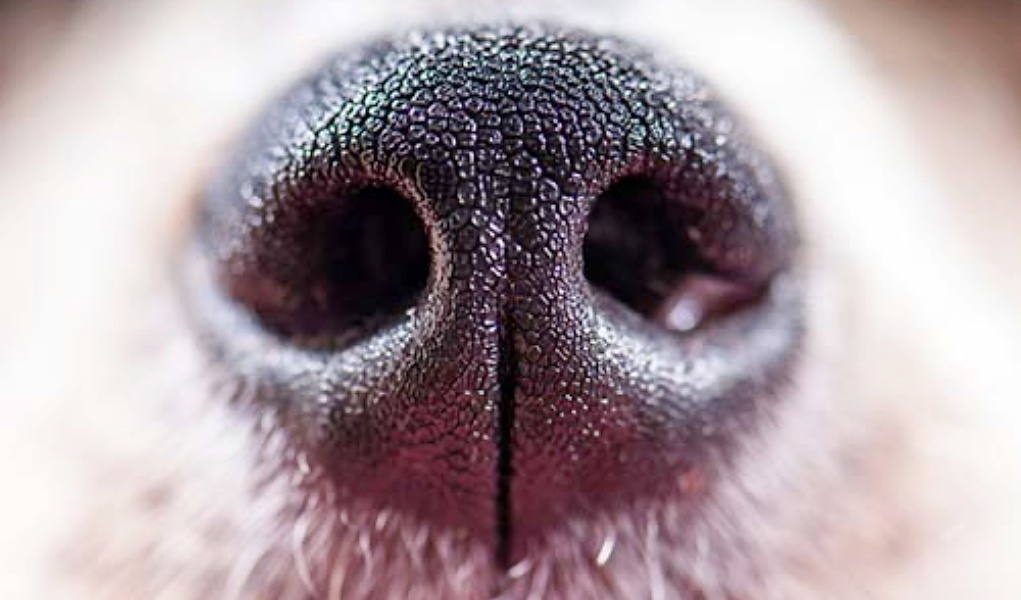Typically, a healthy dog's nose is moist and cool. Why do dogs have wet noses? Do all dogs have wet noses? Is it bad if your dog's nose is dry?
I'll answer all of these questions in this article.
I'm sure you've heard the common misconception that if your dog's nose is dry, it means that he is sick. The reality is that the moisture level and temperature of your dog's body fluctuate all the time.
This means that his nose could be cool and wet sometimes and dry and warm other times. It's not necessarily an indicator of your pet's health and well-being.
What I'm trying to say is that just because your dog's nose is dry, it doesn't mean that he's sick.
If your dog has no other symptoms and seems to be feeling fine, he probably is. It could be that the air is particularly dry that day or that your dog is a bit dehydrated. A dry nose is usually not something to be concerned about – unless it's accompanied by other symptoms.
Why Do Dogs Have Wet Noses?

A dog's dry nose can be a cause for concern if the pet is actually feeling sick and warm. If he's showing signs of a cough or cold, fever, or lethargy, then a trip to the veterinarian might be necessary.
Why do dogs have wet noses?
Did you know that dogs have more than 100 million sensory receptor sites in their nasal cavity? Compare that to the 6 million in humans, and you can see why your pup has such an amazing sense of smell.
Likewise, the area of the canine brain devoted to analyzing scents is about 40 times larger than the comparable part of the human brain. For these reasons, it has been estimated that dogs can smell from 1,000 to 10,000 times better than humans.
This heightened sense of smell is partly due to an olfactory tool that cats and dogs have called Jacobsen’s organ, which increases their ability to smell.
Jacobsen’s organ is located inside the nasal cavity and opens into the roof of the mouth behind the upper incisors. It is designed specifically for chemical communication and serves as a secondary olfactory system.
A dog's nose works best when moist because scent particles stick better to moist surfaces than to dry surfaces.
Another reason why Mother Nature made the canine nose wet is because it helps to keep the dog cool. Dogs release some heat through the pads of their feet and by panting, but the passages also help to dissipate some heat from their bodies.
Should your dog's nose be wet? Technically, yes, but it doesn't always need to be wet in order for your dog to be healthy.
A dry nose is just one symptom that could possibly mean your dog isn't feeling well. Keep a close eye on your pup. If his nose becomes moist after a short period of time, he's fine.
If his nose stays dry and it is accompanied by other symptoms, call your vet to schedule a check-up.
READ NEXT: How To Train A Dog To Do Nose Work (and Why You Should)












